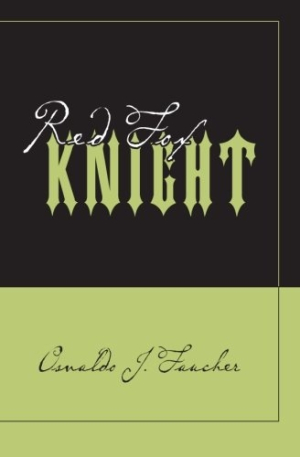Red Fox Knight
In Red Fox Knight, Osvaldo Faucher explores issues at the heart of human civilization: religion, class, and the search for meaning. Through two distinct but intertwined plots, the author shows readers the depths of religion’s ability to divide and unite.
In the year 1101, Roger of Lautremont, a knight of the Crusades, is leaving Jerusalem for France with troops badly depleted by the war. When he returns to France, Roger plans to buck social convention by giving land to his scribe, Bertrand, who saved his life twice but is not of the landowning class.
As they begin their journey, Roger and another knight, Gaston, debate the justness of the war they have been engaged in. Gaston states, “I’m not sure we should have come here in the first place. All that killing without mercy, of innocent people—it wasn’t a Christian way to settle that dispute.” Roger replies simply, “We’re warriors. We did what we were sent to do.” This conflict is one of the themes of the novel—a theme that will resonate with modern readers: what does it mean to live in accord with one’s beliefs?
Faucher also weaves in a second plotline: In 2007, Robert and Olga Whiteside, collectors of ancient artifacts, are negotiating the purchase of a book written by Bertrand in 1104. They travel to France to further pursue the sale with their son (a former priest) and his girlfriend. The differing religious views of the group—atheist, agnostic, Catholic—clash along the way.
In both time periods, characters explore the meaning of relics, the purpose of confession, and the value of remembrance. The story also explores the dynamic pull of cities, specifically New York and Jerusalem, to bring all types of people into the same space. Faucher shows that cities, like religion, have the power to both promote harmony and instigate conflict.
The ideological questions and conflicts of the characters are raw and will be thoroughly felt by readers. While there is plenty of action in the book, intellectual readers will enjoy the novel for its rational arguments while action fans may chafe at the deep discussions.
In the end, the plotlines of Red Fox Knight are resolved, but differing viewpoints remain, creating an open-ended, realistic conclusion. Faucher’s writing is clear, with strong dialogue that only occasionally shifts to the pedantic.
This idea-based epic draws from the thoughts that readers perhaps love and loathe the most, those that most deeply define us.
Reviewed by
Melissa Wuske
Disclosure: This article is not an endorsement, but a review. The publisher of this book provided free copies of the book and paid a small fee to have their book reviewed by a professional reviewer. Foreword Reviews and Clarion Reviews make no guarantee that the publisher will receive a positive review. Foreword Magazine, Inc. is disclosing this in accordance with the Federal Trade Commission’s 16 CFR, Part 255.

